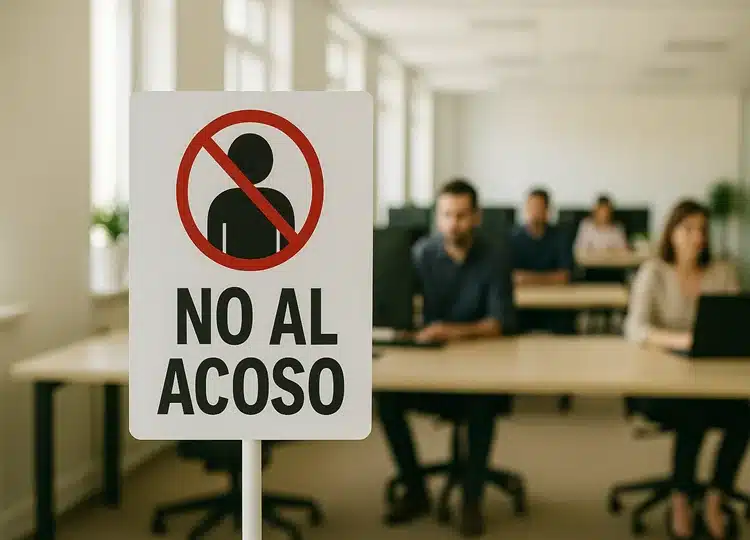
Sexual harassment at work: corporate civil liability and internal prevention
What is sexual harassment at work under the Criminal Code?
Article 184 of the Spanish Criminal Code provides that anyone who solicits sexual favours, for themselves or for a third party, within the framework of an employment relationship and thereby creates for the victim an objectively and seriously intimidating, hostile or humiliating situation, shall be punished, as the perpetrator of sexual harassment, with imprisonment of six to twelve months or a fine of ten to fifteen months, together with special disqualification from exercising a profession, trade or activity for twelve to fifteen months.
In addition, where a legal entity is found liable for this offence, pursuant to Article 31 bis of the Criminal Code, it may be subject to a fine of six months to two years.
Criminal liability of the company in cases of sexual harassment
Organic Law 5/2010 of 22 June introduced into the Criminal Code the concept of criminal liability of legal entities. This means that a company may be held criminally liable for offences committed:
In its name or on its behalf.
For its direct or indirect benefit.
By its legal representatives or those authorised to make decisions on behalf of the company.
By subordinates under the authority of directors or managers, where offences arise from a serious failure in supervision, oversight or control duties.
Thus, in addition to the penalty imposed on the direct perpetrator (such as a director or executive), the company itself may be penalised.
That said, it is difficult to envisage a case in which this offence would be committed for the “benefit” of the company, which is an essential requirement for direct criminal liability.
Sexual harassment and the company’s civil liability
Protection against sexual harassment is a worker’s right within the employment relationship. Correspondingly, the company has a legal duty to:
- Detect
- Combat
- Prevent sexual harassment in the workplace.
Even where the conditions of Article 31 bis for attributing criminal liability to the company are not met, civil liability may still arise if an employee harasses another and the company fails to act diligently.
Civil liability stems from the employer’s obligation to ensure a safe working environment, free of harassment. If the company fails to take adequate preventive measures or acts negligently, it may be held liable for the damages caused to the victim.
Prevention: the importance of compliance in cases of workplace sexual harassmen
It is strongly recommended that companies adopt compliance programmes that reflect an active policy against any form of sexual violence. To this end, they should implement:
Internal reporting systems, as an essential tool for detecting breaches.
Internal whistleblowing mechanisms, ensuring secure and confidential access for any employee wishing to report possible cases of sexual harassment.
These elements form the core of a corporate culture free from sexual violence, providing a clear path to prevent both criminal and civil liability.
Do you need advice? Access our areas related to sexual harassment in the workplace:




